Contents
- Terms of Endearment for Both Men and Women
- Terms of Endearment for Women
- Terms of Endearment for Men
- Funny and Cute Korean Terms of Endearment
- Korean Terms of Endearment for Children
- Korean Terms of Endearment You’ll Hear a Lot in K-dramas
- Using Korean Terms of Endearment and Nicknames
- And One More Thing...
40 Korean Terms of Endearment for Your Loved Ones [with Audio]
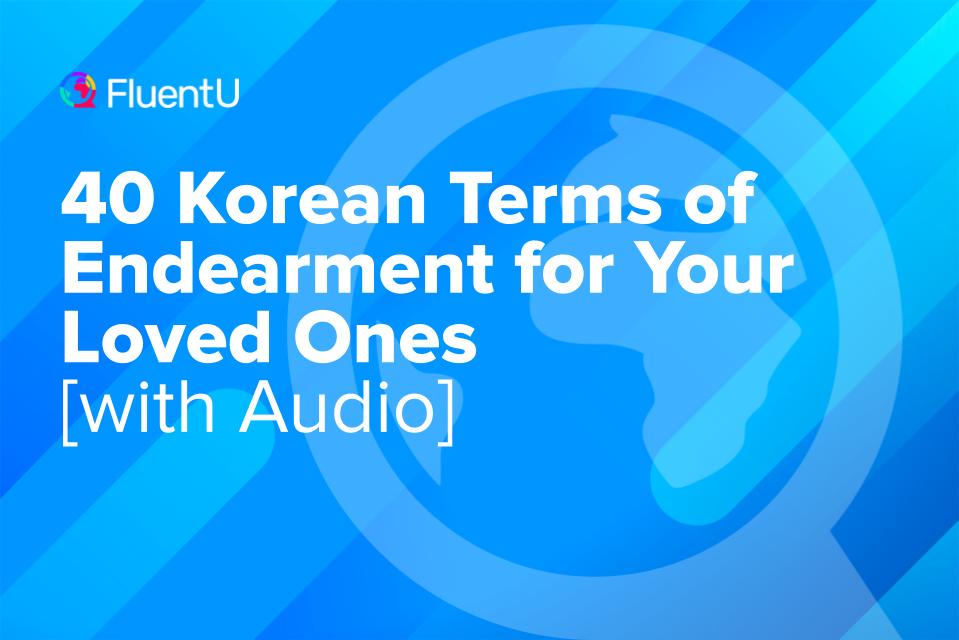
Picking up your Korean partner or friend’s native language is a sure way to get closer to them—and that includes learning Korean terms of endearment.
Even if you and your loved ones aren’t even remotely connected to Korea, you might want to find some creative nicknames that are a little more unique than “cupcake,” “munchkin” or “sugar.” Or maybe you’re just looking for something cute to call your puppy.
Read on to learn more than 40 of the best Korean terms of endearment, with audio pronunciation and an explanation of how to use each term correctly.
Download: This blog post is available as a convenient and portable PDF that you can take anywhere. Click here to get a copy. (Download)
Terms of Endearment for Both Men and Women

This first section includes terms of endearment that aren’t gender-specific. You can use them for a male or female flame. Just remember that these are highly informal utterances and expressions and are reserved only for your love:
애인 — Sweetheart
You’re hopelessly head-over-heels for this person, and you want the world to know that he or she is yours. You might want the world to hear you call him/her 애인, which is an equivalent of the English word “sweetheart.”
애 means “love” and 인 means “person.” Put them together? You get someone who makes your world go round.
A little caveat, though: the term is for unmarried couples. Don’t use this one to refer to your husband or wife. (They might think the two of you are having an affair on the side.)
Before we continue, let’s get some vocabulary terms straight. “Wife” in Korean is 아내 . “Husband,” on the other hand, is 남편 .
자기 — Honey
This one’s good for both married and unmarried couples, although more young people use it these days.
Speaking of “ja-gi,” the 90’s R&B mainstay Kim Jo Han has a song called “자기 (Honey),” which is a pretty catchy tune. You might want to check it out and move to the beat with your honey.
자기 is an interesting term because the word can also be used to refer to “oneself.” So it might speak to the level of closeness and intimacy you have with your partner. If the person is called your better “half,” then it’d be perfectly fine to use the same word you’d use to refer to yourself.
Adding 야 to the term so it becomes 자기야 makes it even more informal.
여보 — Darling
If you’ve been married for a while, like if you’re in your late 40’s and up, 여보 might be the term for you. For example, this is the affectionate term used by the Kim husband-and-wife tandem in the Netflix comedy series “Kim’s Convenience”—about a Korean-Canadian family who runs a convenience store in Toronto.
But really, older couples don’t have a patent on 여보. It can also be used by young couples in a flirty and cutesy way. With the right tone and attitude, you two lovebirds can be the envy of other couples.
영혼의 반쪽 — Soulmate
If you’ve been with someone for a while and it truly feels right, you might want to call them your soulmate.
If you want to tell your partner you feel this way, you can say:
너는 나의 영혼의 반쪽이야 — You’re my soulmate.
인생의 사랑 — Love of my life
Most people only have one “love of their life,” so if you call someone this term of affection, you better mean it!
Here’s how you say this to someone:
너는 나의 인생의 사랑이야 — You’re the love of my life
소중한 사람 — Precious person
This one’s a bit more unusual, but you’ll hear it on K-dramas for sure. If you’re lucky, you’ll be hearing it from someone you love one day, too.
연인 — Lover
This slightly risque term can be used to refer to both boyfriends and girlfriends in a relationship.
내 사랑 — My love
“My love” is a romantic term that can be used by both partners to express their affection for one another.
For example, you could ask your boyfriend or girlfriend:
내 사랑, 오늘 하루 어땠어요? — How was your day, my love?
사랑하는 사람 — Loving person
This slightly formal term can be used to address your significant other to make them feel loved.
첫사랑 — First love
As everyone knows, love is wonderful, but first love is even better because it’s so fresh and new.
If you have a boyfriend or girlfriend for the first time, you could say:
너는 나의 첫사랑이야 — You’re my first love.
Terms of Endearment for Women

If you’re a guy looking for nicknames to call your sweet and pretty SO, here are some Korean terms of endearment you might use:
여자친구 — Girlfriend
It’s not really a nickname, but just in case you wanted to know the Korean word for “girlfriend,” here it is.
It’s the combination of 여자 which means woman, and 친구 which means friend.
For a woman who’s really just a friend, you might use 여자 사람 친구 , which is literally translated as “female person friend.”
공주님 — Princess
She’s too special, so you name her after royalty. You’d do everything for her, including pawn your grandmother’s dentures just to give her everything she deserves.
She can be your precious princess, and you, her dashing prince.
If that’s the kind of love you’re looking for, this is the term of endearment for you!
귀요미 — Cutie
She’s so clumsy, naive and innocent. And it’s all so cute! She’s like a little girl, untouched by the realities of life. 귀요미 might be a fitting appellation. (There was even a Kiyomi Song a few years back.)
You might as well use and enjoy this while you’re both young and unmarried. Because when the kids come, labels drastically change. Well, first of all, she might not be that cute and innocent anymore. And when she becomes somebody’s mother, in Korean culture, you now call her by “name of child + omma.” So when she becomes a mom, it’d now be common to call her “Jeffrey omma,” for example.
Terms of Endearment for Men

If you’re a girl, you might be searching for a suitable nickname for your man since “boo,” “bae” and “babe” have already been taken. Here are some you might use instead:
남자친구 — Boyfriend
Again, not really a term of endearment, but this is the standard Korean word for “boyfriend.”
남자 means “man,” and 친구 means “friend.” The whole term can be contracted as 남친 , where you just take the first syllables of “namja” and “chingu.”
For a guy who’s really just a friend, you can call him a 남자 사람 친구 , which is literally translated as “male person friend.”
오빠 — Older brother
The world has been “oppa”-ing since the Korean wave reached Western shores. You always hear it in Korean dramas. It’s been commonly used, and truth be told, some guys don’t really want to be called an “oppa”—probably because of how it’s often been depicted in dramas.
The term actually means older brother (of a female). But it’s also used to refer to a friend who’s older than you.
In Korean culture, society looks with favor on romantic relationships where the male is a bit older than the female. During the get-to-know-you “friendly” stage, girls call these men their “oppa,” because they’re generally older than them. When they do eventually become a couple, this term, out of habit, is brought into the relationship. And that’s why you have loads of women who are calling their boyfriends “oppa.”
왕자님 — Prince
If ladies are princesses, then a frog can dream and be a prince. At least in name. If your relationship feels like a fairy tale, you can use this term of endearment to tell your partner that he’s your prince.
Hey, did you know that Korea has a modern-day prince…and he’s American?! It’s no Korean drama, but here’s the royal tale.
Funny and Cute Korean Terms of Endearment
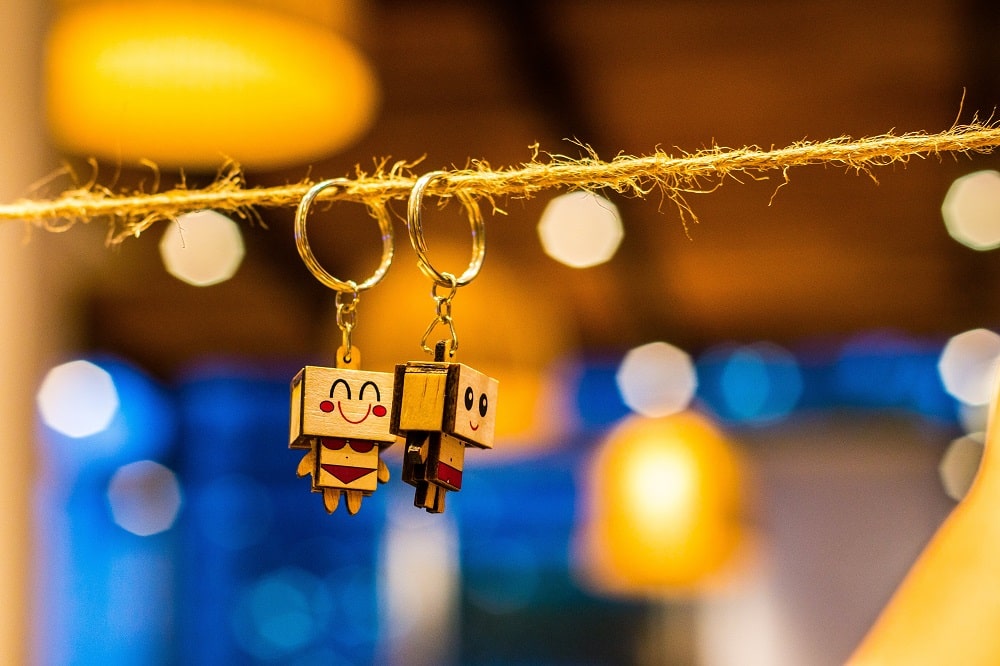
똥개 — Poop dog
Obviously, in English (or any other language really!), you wouldn’t want to call your lover a “poop dog,” but every language has its strange and humorous sayings, right?
돼지 — Pig
This playful term of endearment is used a lot by the younger generations.
꿀벌 — Honeybee
I hope you’re not allergic to bees if your significant other starts calling you this funny term of affection.
바보 — Dummy, idiot
Here’s another unexpected funny term of endearment. “Hey dummy, I love you so much.”
미친 고양이 — Crazy cat
If you really love him or her, you’ll call them a crazy cat. Hey, you can’t say it’s not creative!
Korean Terms of Endearment for Children

애기 — Baby
We use this term of endearment in English, too. It’s often used to affectionately address a young person.
Here’s an example of this word in a sentence:
애기야, 잘 자 — Goodnight, baby.
소중한 보물 — Precious treasure
You know those days when your son or daughter is just perfect—no temper tantrums, just sweet smiles? Those are the days you’ll call them a “precious treasure.”
내 작은 별 — My little star
Sometimes you look at your child and you realize that you love them so much, they’re your “little star.” That’s when you use this affectionate term.
꼬마 — Little one
We use this one in English, too. Sometimes when you’re looking at your little child, you can’t help but call them “little one.”
아기 천사 — Baby angel
This is a cute one that’s used especially for girls in Korean.
Korean Terms of Endearment You’ll Hear a Lot in K-dramas

If you’re a fan of K-dramas, you’ve probably noticed that Korean terms of endearment are often used by the characters. These terms are commonly used in Korean dramas and can add depth to the relationships between characters:
오빠 — Older brother
This one is used by females to address an older male. It can be used for a biological brother, a friend or a boyfriend.
언니 — Older sister
This common term is used by females to address an older female. It can be used for a biological sister, a friend or a girlfriend.
형 — Older brother
This common Korean term is used by males to address an older male, often a close friend or brother.
누나 — Older sister
This one is used by males to address an older female, often a close friend or sister.
아저씨 — Older brother
This term is used by females to refer to an older man. It can be used in a friendly or affectionate way.
아줌마 — Older sister
This term is used by males to refer to an older woman. It can be used in a friendly or affectionate way.
사랑 — Love
This popular term of endearment is used between romantic partners.
자기야 — My love, darling
This is a cute and affectionate way of saying “my love” or “darling.”
바보 — Dummy, idiot
This is playfully used to call someone a fool or silly, often in a teasing and affectionate manner.
애기 — Baby
This means “baby” or “baby-like.” It’s used to refer to someone cute or adorable.
꽃 — Flower
This beautiful word is used to describe someone as delicate or beautiful.
똥 — Poop
Used in a cute and playful way, this is similar to calling someone a “silly goose.”
삐쭈 — Baby, sweetheart
This cute term of endearment is often used between couples, meaning “baby” or “sweetheart.”
학원가 — School mate
This term combines “학원”, which means “cram school” with “가” meaning “person.” It’s a cute and colloquial way for teenagers to refer to each other, implying a connection through shared experiences at private academies or cram schools.
Using Korean Terms of Endearment and Nicknames

Learning words like the ones on this list is a great way to bring your language skills beyond “textbook Korean” and into the realm of real-world Korean speaking.
As you see, each of these words has its own unique usage within Korean culture. These words may seem difficult at first, but luckily, there are a ton of great internet resources to help you learn when and how to use each one.
If you ever feel confused about usage, the WordReference Korean Forum can be a great place to look for an answer. Or, you can always reach out to a Korean language exchange partner or Korean-speaking friend for clarification.
It’d also be a good idea to see how these terms are used in Korean pop culture. Some online immersion programs make the process more efficient. FluentU, for example, enables you to search its library of authentic Korean web videos for clips that contain a specific nickname.
FluentU takes authentic videos—like music videos, movie trailers, news and inspiring talks—and turns them into personalized language learning lessons.
You can try FluentU for free for 2 weeks. Check out the website or download the iOS app or Android app.
P.S. Click here to take advantage of our current sale! (Expires at the end of this month.)
That’s it for our list of Korean terms of endearment and nicknames. So, which one will you use first?
Is it 애인?
친구?
동생?
Choose wisely, because you might be using it lots of times (I hope!)
Download: This blog post is available as a convenient and portable PDF that you can take anywhere. Click here to get a copy. (Download)
And One More Thing...
If you enjoyed this post, you're already halfway to having the time of your life learning Korean with FluentU!
FluentU makes it possible to learn with K-pop videos, funny commercials, entertaining web series and more. Just a quick look will give you an idea of the variety of FluentU videos on offer:
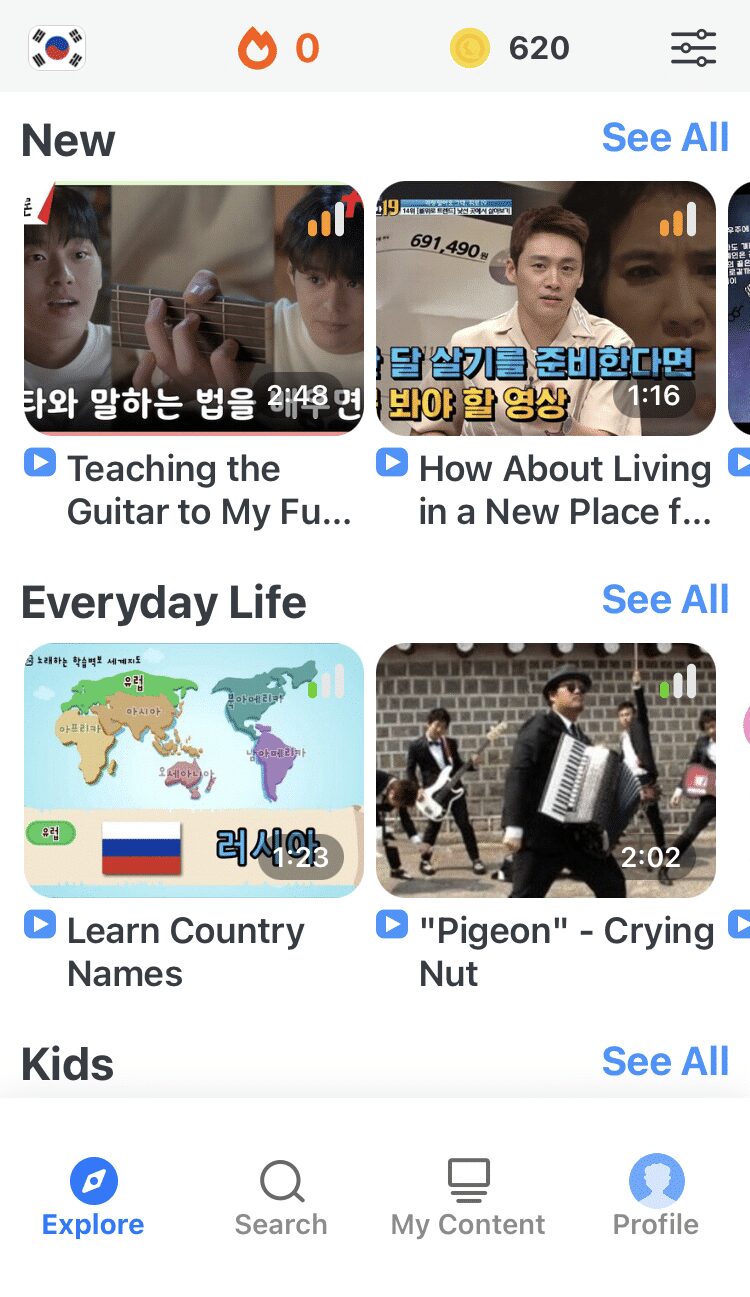
FluentU really takes the grunt work out of learning languages, leaving you with nothing but engaging, effective and efficient learning. It's already hand-picked the best videos for you (which are organized by level and topic), so all you have to do is simply choose any video that strikes your fancy to get started.
Each word in the interactive captions comes with a definition, audio, image, example sentences and more.

Access a complete interactive transcript of every video under the Dialogue tab, and easily review words and phrases from the video under Vocab.
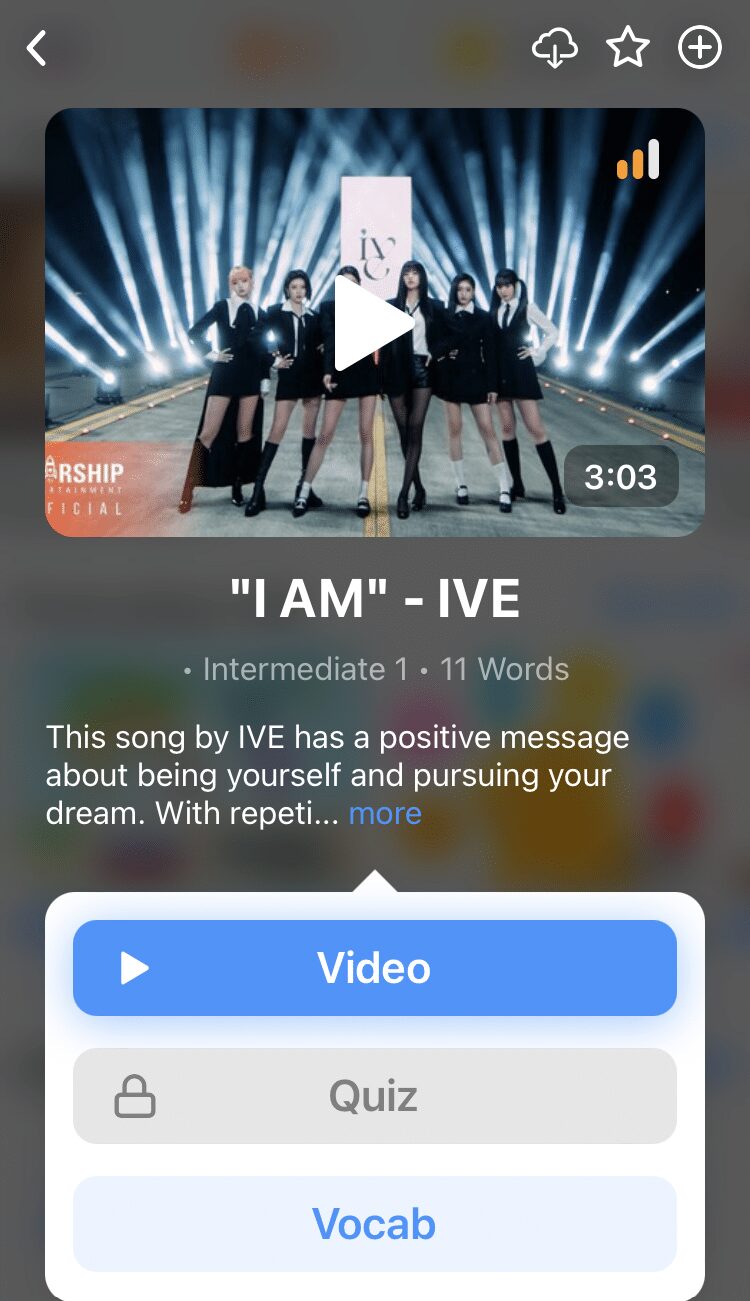
You can use FluentU’s unique Quiz Mode to learn the vocabulary and phrases from the video through fun questions.
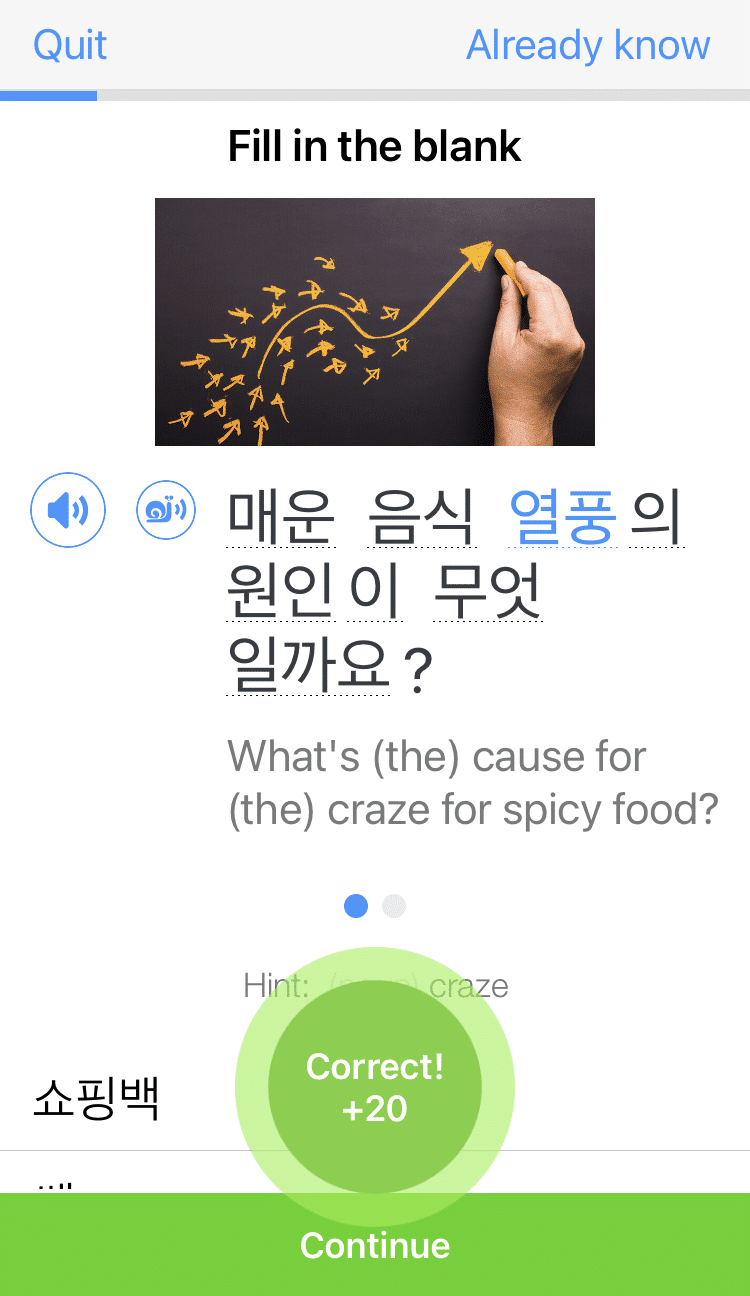
FluentU keeps track of what you're learning, and tells you exactly when it's time for review, giving you a 100% personalized experience.
Review sessions use video context to help embed the words in your memory.
Start using the FluentU website on your computer or tablet or, better yet, download the FluentU app from the iTunes or Google Play store. Click here to take advantage of our current sale! (Expires at the end of this month.)








